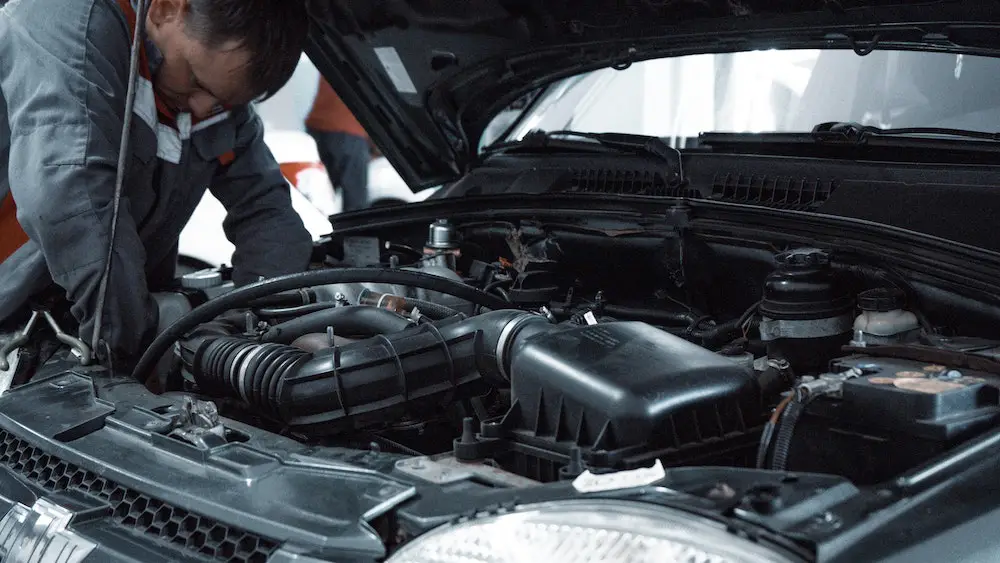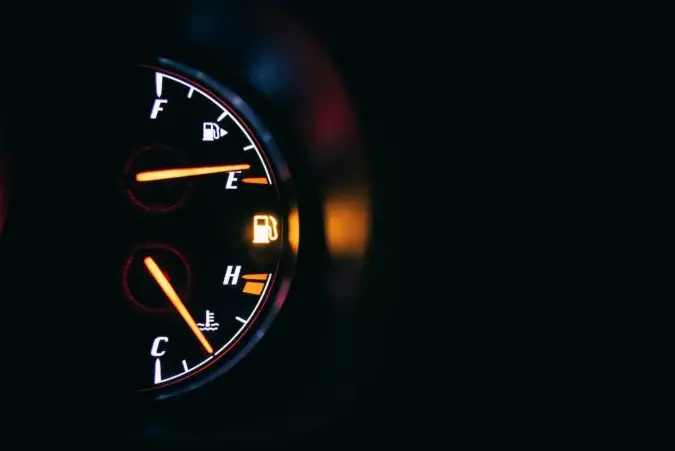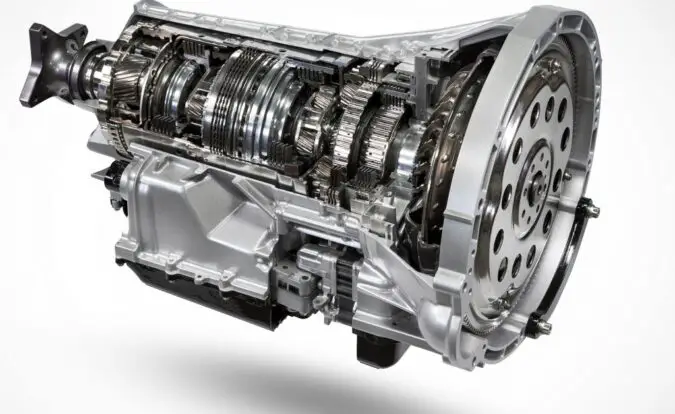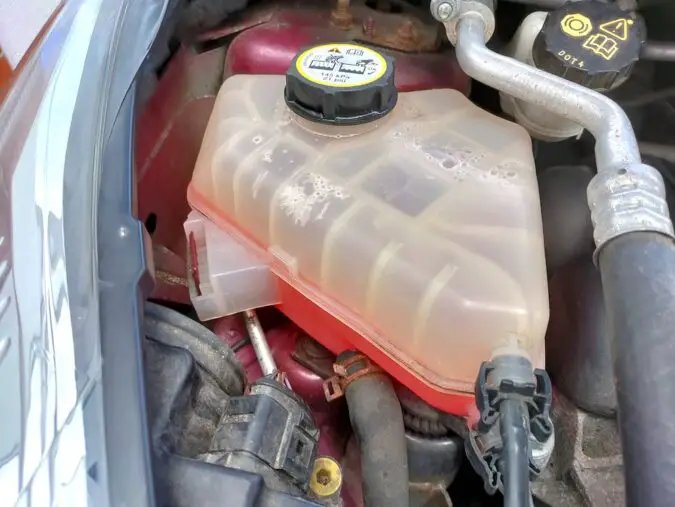The Chevy Cruze is one of the best compact cars you can invest in, it offers a smooth ride with its quiet and beautiful interior, and the power output is one of the best in its class. It is a front-engine, front-wheel drive car that has both gas and diesel engines. You can get the Cruze in sedan, hatchback, and station wagon body styles. You might be wondering – are Chevy Cruze good cars?
Chevy Cruze 2016 model year has fantastic features, including Apple CarPlay and Android Auto, that allow you to connect your mobile phone to the car to stream music, take calls and send texts with voice activation. It has a backup camera, a parking aid, and several other safety features. The Chevy Cruze has a 4 out of 5 reliability score and an annual repair cost of $545, as per RepairPal, which is lower than other cars in its class.
The Chevy Cruze is a low-maintenance car, meaning you won’t have to keep spending on repairs now and then. It has an incredible safety score, and a five-star rating in this category makes it stand out from the competition.
Chevy Cruze
General Motors started the production of the Chevy Cruze in 2008. However, it got to the US market in 2010 as a 2011 model. The second generation of the Chevy Cruze launched in 2016, but GM stopped selling the Chevy Cruze In 2019 because of the growing SUV market. There are two generations of Chevy Cruze;
First-Generation Chevy Cruze (2011-2015)
The first generation Chevy Cruze is a replacement for the Chevy Cobalt but built on a different platform to be a different model. It comes with a 1.4-liter turbo-four engine that produces 138 horsepower and 148 lb-ft of torque. The advantage is that both engines were available in six-speed manual and six-speed automatic transmissions.
The 2014 and 2105 model years featured the 2LT version of Chevy Cruze; they came standard with a 2.0-liter turbo diesel. The 2013 model year was more refreshed and got a contemporary appearance; it came with an upgraded front fascia. Also, the 2013 Chevy Cruze has GM’s optional MyLink entertainment system.
Second Generation Chevy Cruze (2016-2019)
The second-generation Chevy Cruze came with more changes and upgrades. The 2016 model year got a better, modern, stylish, and sporty appearance with a fastback-style sloping roofline. It has a 1.4-liter base engine that produces 153 horsepower. The second generation Cruze featured Apple CarPlay and Android Auto.
In 2016, the brand produced the hatchback version of the Chevy Cruze for the North American market, and it was on sale with the diesel-powered variant of the 2017 model year.
Chevy Cruze Gas Mileage
The 2011 Chevy Cruze Eco should be your pick if you want a Chevy Cruze that offers the best gas mileage. It uses a 1.4-liter turbocharged engine that produces 138 horsepower and a six-speed manual transmission. It gets an EPA rate of 28 mpg in the city, 42 mpg on the highway, and 33 mpg overall. The same 138 horsepower output was fitted with a six-speed automatic transmission will produce 26 mpg in the city, 37 mpg on the highway, and 33 combined mpg.
The 2019 Chevy Cruze comes standard with a four-cylinder 1.4L turbo Ecotec engine that produces 153 horsepower and 177lb-ft of torque. The sedan version has an EPA rating of 30 mpg in the city and 38 mpg on the highway, while the hatchback version has an EPA rating of 28 mpg in the city and 38 mpg on the highway. Also, you can switch to a more powerful 1.6L turbo-diesel four-cylinder engine with a nine-speed automatic transmission.
The 1.6L engine produces 137 horsepower and 240 lb-ft of torque. With this engine, the Chevy Cruze gets an EPA rating of 31 mpg in the city and 48 mpg on the highway for the sedan and 30 mpg in the city, and 45 mpg on the highway for the hatchback. The sedan version of the 2017 Chevy Cruze returns 30 mpg in the city and 40 mpg on the highway.
Chevy Cruze Years To Avoid
Chevy Cruze is a compact and affordable car for users planning to get their first car. Not every year of Chevy Cruze is worth spending money on, and you must know these years to avoid a bad investment. Avoid the:
- 2011
- 2012
- 2013
- 2014
- 2015 model years.
These model years have significant transmission and engine problems that will frustrate you and make you spend so much on repair and replacement. The 2011 model year has the most issues, and many reviews and car enthusiasts have tagged it as the worst Cruze model ever. It is high cost, with problems appearing at low mileage. The transmission is also terrible.
Some users complained that the transmission shut down around 120,000 miles, and it costs $3300 on average to fix the transmission issue. The 2011 model year also has an antifreeze smell in the car caused by a coolant leak. It is also costly to sort out. The 2012 model year has transmission issues, too, coupled with several engine problems. Users complain that the engine shuts down at irregular intervals without cause.
The 2014 model year features a different issue; the highest complaint is the faulty cooling system and several cases of overheating. Manufacturers haven’t said anything about this issue yet, and most users just had to change the valves, water pump, or radiator. The 2014 model year also has steering issues, lack of any power steering while driving, and so on. Many users complained that there are cases when the steering wheel gets locked while driving.
Stay away from these model years and save yourself the stress.
Chevy Cruze Engine
Chevy Cruze has a four-cylinder turbocharged 1.4-liter engine that produces 153 horsepower. Only a six-speed automatic transmission is available since GM no longer designs manual transmissions with the newer models of Chevy Cruze.
For its class, the fuel efficiency is not bad as it produces 30 mpg in the city and 38 mpg on the highway (sedan), and the hatchback returns 28 mpg in the city and 38 mpg on the highway. Chevy Cruze also has a diesel engine option; the four-cylinder 1.6-liter engine produces 137 horsepower and comes with a nine-speed automatic transmission.
Fuel economy for the turbo diesel engine range from 31 mpg in the city and 48 mpg on the highway for the sedan, 30 mpg in the city, and 45 mpg on the highway for the hatchback.
Chevy Cruze Reliability
According to RepairPal, Chevy Cruze got a reliability score of 4.0 out of 5.0, taking it to 26th position out of 36 cars in its class. The annual repair and maintenance cost is $545, which is higher than some in its category. However, the 2016 and 2017 model has a reliability score of 88 out of 100, making the Chevy Cruze the second best after the Toyota Prius.
Chevy Cruze Problems
Like every other car, Chevy Cruze has several problems that affect its drivability and overall performance; the issues are;
1. Engine Problems
The 2018 Chevy Cruze and the redesigns are the main culprits of engine problems; users often complain of their engines stalling while driving. Faulty alternators, sensors, or low fuel may cause this issue, and some drivers even reported that their vehicles were smoking from under the hood. Many users complained that their engines shut down several times within the first 60 days of buying their cars.
Apart from faulty alternators or sensors, many 2018 Chevy Cruze owners decided that their engine issue was caused by leaking oil from under the car. If you use the 2018 model and have the same problem, get your vehicle to a mechanic to help you check it out. Also, you should note that using the wrong fuel, a damaged head gasket, and poor lubrication can also damage your engine.
2. Damaged Pistons
Many 2017 Chevy Cruze users complained about a cracked piston causing their car to accelerate poorly or shut down during acceleration. Replacing a damaged piston can cost you around $1,000.
3. Electrical Problems
The 2016 Chevy Cruze is the main culprit of electrical issues. Many users complained about having difficulties starting their cars, and others complained about faulty radios and check engine lights turning on. The electric problem may result from a dead battery, stuck relay, faulty alternator, or a damaged fuse.
4. Harsh Shifting
The harsh shifting issue is common with the 2011-2016 Chevy Cruze. Many users complained about their transmission shutting down and experiencing hard shifting while changing gears. The problem may result from faulty software, and you can quickly solve this issue by resetting or updating the transmission controller.
A damaged shift solenoid or valve body may also cause harsh shifting, and a replacement solenoid always costs upward of $400, while a valve body can cost between $200 to $800, including labor costs.
5. Steering Problems
If you are using the 2014 Chevy Cruze, you most likely will be facing steering problems. Some users reported that the steering of their Cruze would lock at highway speeds and begin to jerk with power assist. Steering issues increased the rate of accidents.
6. Faulty Water Pump
The 2014 Chevy Cruze is the main culprit for a damaged water pump. This issue cause engine overheating and head gasket damage. Your car water pump may be damaged because of bad seals, faulty belts, corrosion, and seals. Replacing your water pump will cost around $30 to $100.
7. Coolant Leaks
Coolant leaks have been a common issue since the 2011 Chevy Cruze model. Some users complained about the foul smell of antifreeze inside their cabin. Some users reported seeing white smoke from under the hood, and some complained about faulty air conditioners because the leak made the engine overheat.
The complaint became too much, and users filed a class-action lawsuit against GM in 2014. Users argued that the 2011 Chevy Cruize had a lot of mechanical issues that caused the antifreeze to leak from the radiator. They reported that the problem was still persistent even after taking the car to the dealership several times.
8. Transmission Failure
The 2011 Chevy Cruze has transmission issues; users complained about annoying and rattling noise from the vehicle before switching to reverse. Some reported that their car would stay in the drive for a long time and suddenly accelerate, then slow down without triggering that feature.
Factors such as a bad torque converter, low transmission fluid (if you’re seeing low transmission fluid on dipstick or the sign of low transmission fluid), damaged transmission solenoid, or faulty clutch can cause transmission failure. As you want to get your dream car, it’s imperative to check out these issues before you make any payment. Cars generating too many faults will not offer any value to the owner. You will only be spending money on repairs and replacement.
Chevy Cruze Turbo Problems
GM stopped the production of the Chevy Cruze in 2019 because of the emergence of SUVs. While it was still in production, specific turbo problems were peculiar to the Cruze. They included;
- Turbo failure caused by the bypass or blow-off valve
- Engine oil leaks
- Coolant leaks
- Engine misfiring
- Bad oil economy
- Throttle lag
- Faulty power steering rack
Most of these issues are repairable, while some are not, and the only solution is to replace the parts.
Chevy Cruze Diesel Problems
If you have a Chevy Cruze diesel, your car will have malfunctioning brakes, electrical issues, and throttle lag that causes sluggish acceleration. Other issues include;
- Antifreeze leaks
- Transmission issue
- Soy-coated wiring issue
Chevy Cruze Overheating
One of the common problems for Chevy Cruze is coolant overheating, and sometimes it won’t even heat at all. If your car is having this issue, check if there is enough coolant inside and ensure there are no leaks. Also, check if your thermostat is opening properly. It controls the amount of coolant that flows into the system and regulates temperature; if it’s not working correctly, your Chevy Cruze will overheat.
Check your water pump. It’s responsible for transporting coolant through the coolant system. A malfunctioning water pump usually leaks. Another reason for overheating is a faulty radiator. The radiator is responsible for cooling the hot fluid going into the engine. If the radiator is leaking or the cap is damaged, it often causes overheating.
Faulty cooling fans, coolant hoses, and coolant temperature sensors can also cause Chevy Cruze to overheat. Once you check, repair, or replace these parts, your Chevy Cruze should stop overheating.
Chevy Cruze Horsepower
The horsepower that Chevy Cruze produces depends on the model year, the type of engine, and the trim level. The 2019 Chevy Cruze has between 137 to 153 horsepower depending on the trim level. The base 4dr Sedan CVT has 153hp, while the Diesel 4dr Sedan, the hatchback 5D LT Turbo Diesel, and Diesel 4dr HB (Hatchback) have 137hp. The 2018 Chevy Cruze has a 1.4L engine that produces 153hp.
2017 Chevy Cruze has seven trim levels. Every trim level except Sedan 4D LT 4 Cylinder Turbo diesel has 153hp. 2016 Chevy Cruze has either 138 or 153hp, depending on the trim level. Chevy Cruze 2011 has between 136 and 138hp, the 2012 Chevy Cruze has 138hp, and the 2014 Chevy Cruze has 138 and 151 horsepower, depending on the trim level.
Chevy Cruze Temperature Sensor Recall
There is no recall for Chevy Cruze about temperature sensors. However, there are recalls about the powertrain, service brakes (should you notice a “service brake assist” light), fuel system, electric system, exterior lighting, etc.
Chevy Cruze Check Engine Light
The check engine light on your Chevy Cruze indicates something is wrong with the car, probably the engine, and you need to stop and check it out before it gets out of hand. It may indicate a misfiring cylinder. At this point, your Chevy will go into the fail-safe mode or a limp mode at reduced power.
The limp mode will allow you to pull over or drive to a nearby shop. To know what the check engine light is saying, a mechanic will figure that out using a scanner. A malfunction code will display, and the code will indicate the problem and what to do next.
Best Year For Chevy Cruze
If you are just getting your first car or are a fan of Chevy Cruze vehicles, there are some years you need to avoid and some years that will give you the best value. For a safe purchase, choose between the 2016-2019 model years. They have little or no issues, and you will enjoy them for a long time.
FAQs On Are Chevy Cruze Good Cars
Are Chevy Cruze Good Cars
Chevy Cruze cars are one of the best compact cars you can invest in as long as you know which one to buy. With a reliability score of 4.0 and ranked 26th out of 36 cars in its class, Chevy Cruze is the real deal. Find the correct information, purchase from the best years, and you won’t regret it.
How Long Do Chevy Cruze Last
If you stick to good maintenance and cultivate excellent driving behavior, your Chevy Cruze should be working perfectly to 200,000 and 250,000 miles. That’s an average of 15,000 miles per year, meaning you should be able to use your car for up to 17 years before it breaks down or needs significant repair or replacement.
What Does Chevy RS Stand For
RS in Chevy Cruze stands for Rally Sport. GM offers the RS as a trim level or an optional package depending on your vehicle and the model year. The RS could offer different headlights, appearance, or wheels. Some RS may have upholstery on the interior, while others will feature clothes.
Is Chevrolet A Good Car
Chevrolet vehicles are mostly ranked average, but they are the best regarding customer satisfaction. Models such as Cruze, Camaro, Equinox, Suburban, Bolt, and Silverado all offer great rides, getting good customer ratings.
Is A Camaro A Good First Car
The Camaro should not be your pick if you are just getting your first car. The reason is that the Camaro is super fast, and you need a slower car to hit the road for the first time as a first-timer. The Camaro will be the best pick for drivers with much experience, not a first-timer.
How Many Miles Does A Chevy Cruze Last
Typically, your Chevy Cruze should last between 200,000 and 250,000 miles. The life expectancy depends on the model year you have, your driving behavior, and whether or not you maintain your car well. If you don’t cultivate good maintenance practices, your Chevy Cruze may not reach that Mileage before it breaks down.
Are Chevy Cruze Reliable
Chevy is averagely reliable, but some model years are better and more reliable than others. Models such as Cruze and Bolt are reliable but not across their model years. For instance, Chevy Cruze 2011-2015 is not very reliable, while 2016-2019 are better choices.
What Year Did The Chevy Cruze Come Out
Chevy Cruze first hit the market in 2008, it got to the US market in 2010, and GM stopped producing this model in 2019 because of the popularity of SUVs.
Does The Chevy Cruze Have A Turbo
Every Chevy Cruze model year comes standard with a 1.4-liter turbocharged engine; the engine pairs with a six-speed automatic transmission to produce 153hp and a fuel economy of 30 mpg[city] and 38 mpg[highway]. Turbo is an excellent advantage for Chevy Cruze.
Do Chevy Cruze Have A Lot Of Problems
Most Chevy Cruze users tend to take their cars to mechanic shops about 0.4 times a year, and most of the time, the problem is always severe. Common issues include engine, transmission, steering, and so on. However, the problems were reduced starting from the 2016 model year.
How Long Will A Chevy Cruze Last
With proper maintenance practice and good driving behavior, your Chevy Cruze should last between 200,000 miles to 250,000 miles, that’s about thirteen to seventeen years. Poor driving behavior will cost your car to break down before the expected mileage.
Conclusion On Are Chevy Cruze Good Cars
Chevy Cruze is a good car, depending on your model year. Model years from 2011 to 2019 won’t give you much value. However, the Chevy Cruze of 2016-2019 is better; they offer great rides with little or no issues.




